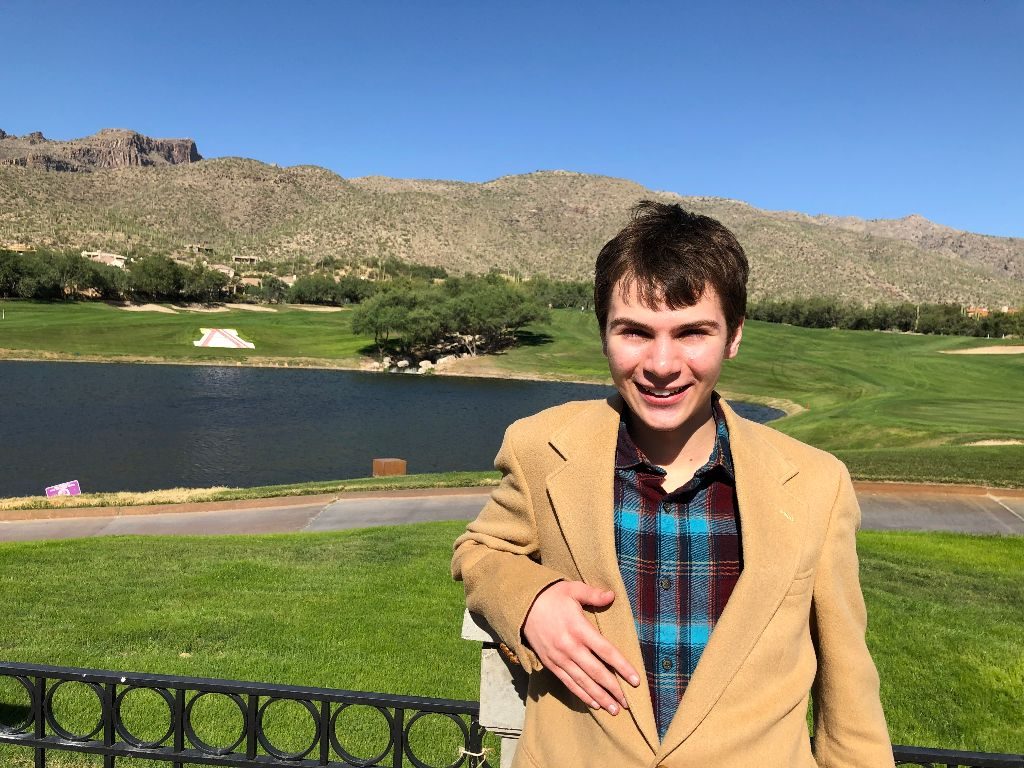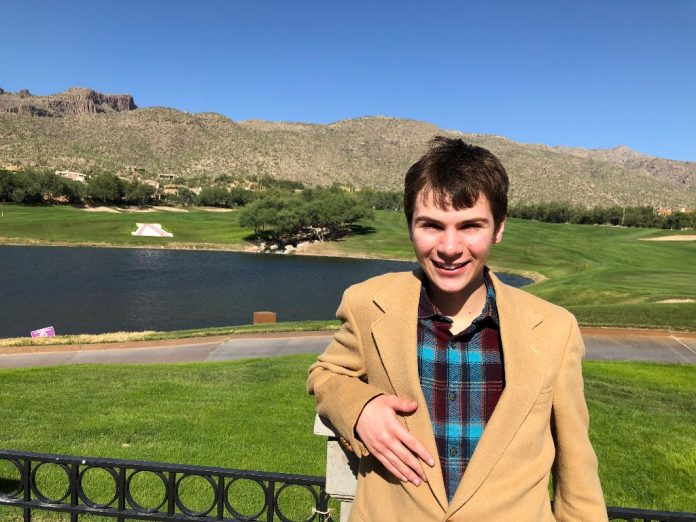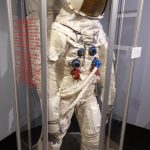At classical music concerts I attend, one thing is a constant: the age of the audience. Nearly everyone is 50-plus, with an emphasis on the 70-plus set. There are very few indeed under 25, or even 35. To gauge the state of classical music today I interviewed Conlan Salgado, 16, who is training to be a composer and actor here in Tucson. His starting point is the world’s most famous classical composer, Ludwig von Beethoven (1770-1827).
“The only person I could think of studying was Beethoven but only he could fulfill classical music (CM) as an art form – others did not have his capacity as an artist. After that it degenerated into a revolt. He was a revolutionary but even his personality could not sustain the revolution he started. In the cultural turbulence caused by the Enlightenment CM exploded, but culturally we have not got back to the eminence we had. By the late 20th century composers like Karlheinz Stockhausen (1928-2007) created atrocious music. There was nothing left that was discernably classical.”
Salgado drew a distinction between the effect of rock music and CM on the listener. “Not too long ago we had the development of rock opera. How to incorporate rock rhythms into CM is not necessarily bad, but rock and rap is music of the body, CM is music of the soul and mind. It’s easier to appeal to the body, so CM sits in a corner of a very dusty broom closet.”
“The music that makes me feel the most is Beethoven, because he forged the strongest connection between people, which is soul to soul. He was the first great philosophical composer. Music based on soul far surpasses music based on body. Beethoven placed a great stress, even more than Bach did, on personal expression. He had a great knowledge of his own magnificence, and used his music to express human philosophy. His music was inevitable: he didn’t write a piece that didn’t need to be written. Bach was composer like that in many ways. There are moments in St. Matthew’s Passion where you can catch glimpses of what Beethoven was going to do, and you can also catch glimpses in Mozart’s Requiem.”
The subject of Beethoven’s role in classical music has been a subject of considerable debate. In an article for London’s Guardian newspaper in 2005, Dylan Evans touched on the same view expressed by Salgado of Beethoven’s self-awareness as a great composer, but his conclusions are not as rosy. “With Beethoven we leave behind the lofty aspirations of the Enlightenment and begin the descent into the narcissistic inwardness of Romanticism. Mozart gives you music that asks to be appreciated for its own sake, and you don’t need to know anything about the composer’s life to enjoy it. Beethoven’s music, on the other hand, is all about himself – it is simply a vehicle for a self-indulgent display of bizarre mood swings and personal difficulties.”
Whether or not Beethoven ruined CM as Evans claims, Salgado is not sanguine about the current situation. “Today the state of CM isn’t very good. Only a few listen to it because they love it. Most people would rather see the musical Hamilton.”
Salgado said that most other people his age are not interested in CM. “Most young people don’t have the patience of the intellect to appreciate it. Unless it’s with an adult I don’t have a conversation about CM. I don’t know how you can be an educated person without understanding the history of music,” he lamented.
He is currently enrolled in both music and acting classes, which he hopes will lead to a shot at studying at a Conservatory next year. The Tucson Symphony Orchestra hosts a course in downtown Tucson every Friday, taught by the 2nd violist of the TSO, Illona Vucovic-Gay. Students there study theory, and write short pieces that are played in class.
On the acting front, he attends the Bennett Theatre Lab three times a week. There Salgado is taught based on the Konstantin Stanislavski method, developed in Russia in the early 20th century. Key elements of the instruction at the lab deal with psycho-physical actions, and a lot of improvisation. “The idea behind the system is to embody a character through physical action. Not method acting, which can actually damage your nervous system.”
So on the one hand we have acting which is physical, and on the other CM which deals with the soul. How does Salgado reconcile the two? “Acting doesn’t stay physical, it is meant to go from the outside in to reach the soul. Pop music never reaches the soul. The classical composer is a purely creative artist, whereas the actor is provided with a premise that’s been created, and you must try to bring it to life.”
Note: Dylan Evans is a senior lecturer in intelligent autonomous systems at the University of the West of England.
Photo by C Cunningham














